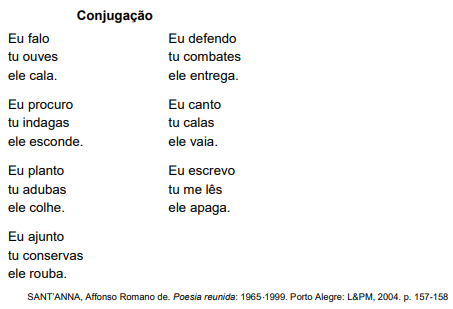Questões de Vestibular UEG 2015 para Vestibular
Foram encontradas 52 questões
Leia o texto a seguir para responder à questão.
Migrant or Refugee? There Is a Difference, With Legal Implications
In the first half of this year alone, at least 137,000 men, women and children crossed the Mediterranean Sea to reach the shores of Europe, according to the United Nations. Thousands are traveling across the Balkans now. However, are they refugee or migrants? Does it make any difference? In search for these answers, let’s read the interview.
Q. Does it matter what you call them?
A. Yes. The terms “migrant” and “refugee” are sometimes used interchangeably, but there is a crucial legal difference between the two.
Q. Who is a refugee?
A. Briefly, a refugee is a person who has fled his or her country to escape war or persecution, and can prove it.
Q. What does the distinction mean for European countries?
A. Refugees are entitled to basic protections under the 1951 convention and other international agreements. Once in Europe, refugees can apply for political asylum or another protected status, sometimes temporary. By law, refugees cannot be sent back to countries where their lives would be in danger. “One of the most fundamental principles laid down in international law is that refugees should not be expelled or returned to situations where their life and freedom would be under threat,” the refugee agency said in a statement on Thursday.
Q. Who is a migrant?
A. Anyone moving from one country to another is considered a migrant unless he or she is specifically fleeing war or persecution. Migrants may be fleeing dire poverty, or may be well-off and merely seeking better opportunities, or may be migrating to join relatives who have gone before them. There is an emerging debate about whether migrants fleeing their homes because of the effects of climate change – the desertification of the Sahel region, for example, or the sinking of coastal islands in Bangladesh – ought to be reclassified as refugees.
Q. Are migrants treated differently from refugees?
A. Countries are free to deport migrants who arrive without legal papers, which they cannot do with refugees under the 1951 convention. So it is not surprising that many politicians in Europe prefer to refer to everyone fleeing to the continent as migrants.
Disponível em: <https://www.nytimes.com/2015/08/28/world/migrants-refugees-europe-syria.html?_r=0>. Acesso em: 15 set. 2015.
Leia o texto a seguir para responder à questão.
Migrant or Refugee? There Is a Difference, With Legal Implications
In the first half of this year alone, at least 137,000 men, women and children crossed the Mediterranean Sea to reach the shores of Europe, according to the United Nations. Thousands are traveling across the Balkans now. However, are they refugee or migrants? Does it make any difference? In search for these answers, let’s read the interview.
Q. Does it matter what you call them?
A. Yes. The terms “migrant” and “refugee” are sometimes used interchangeably, but there is a crucial legal difference between the two.
Q. Who is a refugee?
A. Briefly, a refugee is a person who has fled his or her country to escape war or persecution, and can prove it.
Q. What does the distinction mean for European countries?
A. Refugees are entitled to basic protections under the 1951 convention and other international agreements. Once in Europe, refugees can apply for political asylum or another protected status, sometimes temporary. By law, refugees cannot be sent back to countries where their lives would be in danger. “One of the most fundamental principles laid down in international law is that refugees should not be expelled or returned to situations where their life and freedom would be under threat,” the refugee agency said in a statement on Thursday.
Q. Who is a migrant?
A. Anyone moving from one country to another is considered a migrant unless he or she is specifically fleeing war or persecution. Migrants may be fleeing dire poverty, or may be well-off and merely seeking better opportunities, or may be migrating to join relatives who have gone before them. There is an emerging debate about whether migrants fleeing their homes because of the effects of climate change – the desertification of the Sahel region, for example, or the sinking of coastal islands in Bangladesh – ought to be reclassified as refugees.
Q. Are migrants treated differently from refugees?
A. Countries are free to deport migrants who arrive without legal papers, which they cannot do with refugees under the 1951 convention. So it is not surprising that many politicians in Europe prefer to refer to everyone fleeing to the continent as migrants.
Disponível em: <https://www.nytimes.com/2015/08/28/world/migrants-refugees-europe-syria.html?_r=0>. Acesso em: 15 set. 2015.
Leia o texto a seguir para responder à questão.
Migrant or Refugee? There Is a Difference, With Legal Implications
In the first half of this year alone, at least 137,000 men, women and children crossed the Mediterranean Sea to reach the shores of Europe, according to the United Nations. Thousands are traveling across the Balkans now. However, are they refugee or migrants? Does it make any difference? In search for these answers, let’s read the interview.
Q. Does it matter what you call them?
A. Yes. The terms “migrant” and “refugee” are sometimes used interchangeably, but there is a crucial legal difference between the two.
Q. Who is a refugee?
A. Briefly, a refugee is a person who has fled his or her country to escape war or persecution, and can prove it.
Q. What does the distinction mean for European countries?
A. Refugees are entitled to basic protections under the 1951 convention and other international agreements. Once in Europe, refugees can apply for political asylum or another protected status, sometimes temporary. By law, refugees cannot be sent back to countries where their lives would be in danger. “One of the most fundamental principles laid down in international law is that refugees should not be expelled or returned to situations where their life and freedom would be under threat,” the refugee agency said in a statement on Thursday.
Q. Who is a migrant?
A. Anyone moving from one country to another is considered a migrant unless he or she is specifically fleeing war or persecution. Migrants may be fleeing dire poverty, or may be well-off and merely seeking better opportunities, or may be migrating to join relatives who have gone before them. There is an emerging debate about whether migrants fleeing their homes because of the effects of climate change – the desertification of the Sahel region, for example, or the sinking of coastal islands in Bangladesh – ought to be reclassified as refugees.
Q. Are migrants treated differently from refugees?
A. Countries are free to deport migrants who arrive without legal papers, which they cannot do with refugees under the 1951 convention. So it is not surprising that many politicians in Europe prefer to refer to everyone fleeing to the continent as migrants.
Disponível em: <https://www.nytimes.com/2015/08/28/world/migrants-refugees-europe-syria.html?_r=0>. Acesso em: 15 set. 2015.
Analise o texto a seguir.

Disponível em: <https://pt.slideshare.net/oxblondieox98/human-diversity-in-education-11433320>. Acesso: 15 set. 2015.
According to the ideas expressed in the text
Leia o texto a seguir para responder à questão.

Leia o texto a seguir para responder à questão.

Leia o texto a seguir para responder à questão.

Leia o texto a seguir para responder à questão.


Tradicionalmente são consideradas antônimas palavras cujos significados estão em oposição entre si. Considerando-se isso, verifica-se no poema “Conjugação”, de Affonso Romano de Sant’Anna, que
Leia o poema e observe a pintura a seguir para responder à questão.
Destes penhascos fez a natureza
O berço, em que nasci: oh quem cuidara,
Que entre pedras tão duras se criara
Uma alma terna, um peito sem dureza!
Amor, que vence os tigres, por empresa
Tomou logo render-me ele declara
Centra o meu coração guerra tão rara,
Que não me foi bastante a fortaleza
Por mais que eu mesmo conhecesse o dano,
A que dava ocasião minha brandura,
Nunca pude fugir ao cego engano:
Vós, que ostentais a condição mais dura,
Temei, penhas, temei; que Amor tirano,
Onde há mais resistência mais se apura
COSTA, Claudio Manuel da. Soneto XCVIII. Disponível em: <http://www.bibvirt.futuro.usp.br>


Leia o poema e observe a pintura a seguir para responder à questão.
Destes penhascos fez a natureza
O berço, em que nasci: oh quem cuidara,
Que entre pedras tão duras se criara
Uma alma terna, um peito sem dureza!
Amor, que vence os tigres, por empresa
Tomou logo render-me ele declara
Centra o meu coração guerra tão rara,
Que não me foi bastante a fortaleza
Por mais que eu mesmo conhecesse o dano,
A que dava ocasião minha brandura,
Nunca pude fugir ao cego engano:
Vós, que ostentais a condição mais dura,
Temei, penhas, temei; que Amor tirano,
Onde há mais resistência mais se apura
COSTA, Claudio Manuel da. Soneto XCVIII. Disponível em: <http://www.bibvirt.futuro.usp.br>




Dados os conjuntos  , a intersecção entre eles é dada pelo conjunto
, a intersecção entre eles é dada pelo conjunto
O número de maneiras que esse aluno pode escrever essa palavra é
Número de ônibus Número de passageiros 47 1.410 50 1.400 48 1.536 52 1.352 49 1.666
Os dados da tabela indicam que o número médio de passageiros transportados por ônibus nesse município durante esse período é
 , logo a mensagem recebida é amor.
, logo a mensagem recebida é amor.
Dessa forma, se a mensagem recebida por Tatiana foi flor e a matriz B =
 , então a matriz A é
, então a matriz A é 